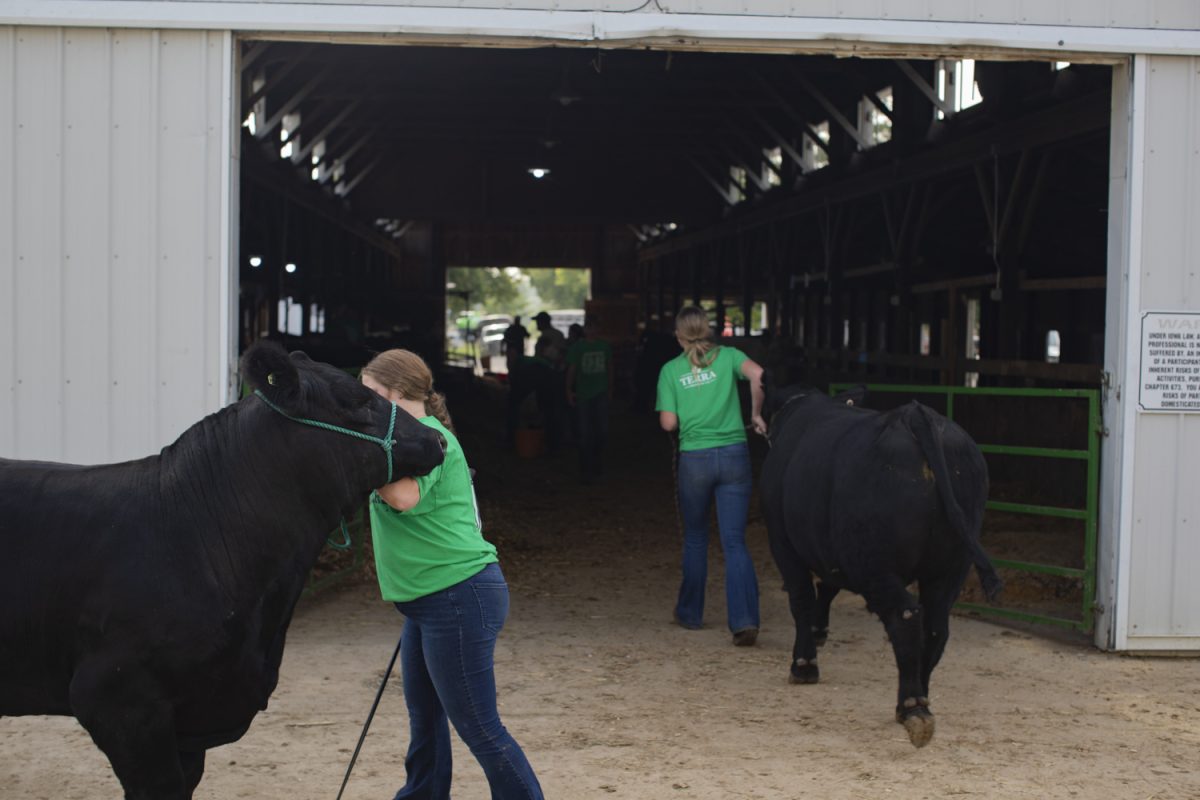A landmark case in the Iowa Supreme Court is offering new hope to convicted felons who are now permanently barred from voting.
The Iowa Supreme Court is deliberating the case of Kelli Jo Griffin, a southeast Iowa woman who lost her voting rights after being convicted of a nonviolent drug felony, cocaine delivery, in 2008.
The court is currently trying to define what an infamous crime is and whether offenses such as Griffin’s can be considered one.
Paul Gowder, a University of Iowa associate professor of law, said defining an infamous crime is no easy task.
Under common law, Gowder said, the term infamous crime has been used to define crimes of fraud and deception. He also said the term was sometimes used for crimes that are extremely and morally troubling by the standards of the time.
“So if you take that interpretation, I think it’s pretty clear that possession of cocaine is not an infamous crime and that the Supreme Court really ought to rule in favor of the challenger,” he said.
Lawyers from the American Civil Liberties Union represent Griffin, and they argue that her offense should not be considered an “infamous crime.”
If the court rules in Griffin’s favor, it is estimated that thousands of convicted felons in Iowa could potentially vote again. According to an NAACP brief from between 2011 and 2013, about 25,000 Iowans finished serving felony charges. During that time, only 40 of them regained their voting rights.
Iowa is among the three strictest states in the nation in regards to felon voting disenfranchisement. Under current state law, anyone who has been convicted of an infamous crime loses her or his right to vote. To regain the right, convicted individuals must go through a rigorous application process to get approval from the governor of Iowa.
Jean Basinger, a member of the American Civil Liberties Union, said the organization believes ex-felons should automatically have their voting rights restored after finishing their sentences.
“We feel that ex-felons ought to be allowed to vote and even people in prison should be allowed to vote,” she said.
She said restoring voting rights helps reintroduce ex-felons to society after their sentences.
“It gives them the feeling that they’re not really accepted as citizens and they don’t have a role in choosing leaders,” she said. “That is very detrimental to their self-esteem.”
Basinger also said that the current laws are detrimental to African American voters.
“The minority population is overrepresented in prisons,” she said. “They often get prison sentences in situations where someone who is Caucasian does not, so it ends up that a disproportionate number of them are disenfranchised.”
Roger Clegg, the president and general counsel of the Center for Equal Opportunity, said while the law can always be improved, Iowa’s current felon-voting system makes sense.
“If you’re not willing to follow the law, you can’t really claim the right to make a law for everybody else, and that’s what you do when you vote,” he said. “You’re making a law directly in the case of a referendum, and you’re making it indirectly if you’re choosing lawmakers or enforcers.”
Clegg also said it is best to wait a certain period of time to make sure the felon has really turned over a new leaf.
“The unfortunate fact is most people who are released from prison are going to end up going back because they’re going to commit a new crime,” he said.
Clegg said the voting-rights restoration should be dealt with on a case-by-case basis.
“I don’t think that the process should necessarily be an easy one. It should be efficient, but it shouldn’t be automatic,” he said.
Gowder said voting is not like a fine, in which it is reasonable for the Legislature to take away rights as a punishment. Rather, he said, it is essential for participation in the democratic process.
“I think that there are an awful lot of people who are disqualified from voting in the state right now,” he said, “And they are disqualified for things that really rationally don’t have anything to do with whether or not they’d make a good democratic citizen.”
He said if the Legislature has the power to define infamous crimes, then it means that it’s the Legislature deciding the qualifications for voting, not the Constitution.
“Right now, essentially the Legislature has decided that felonies are infamous crimes,” Gowder said. “And so the question before the court is, does the Legislature have that power?”







